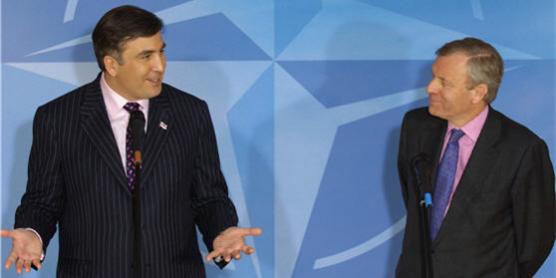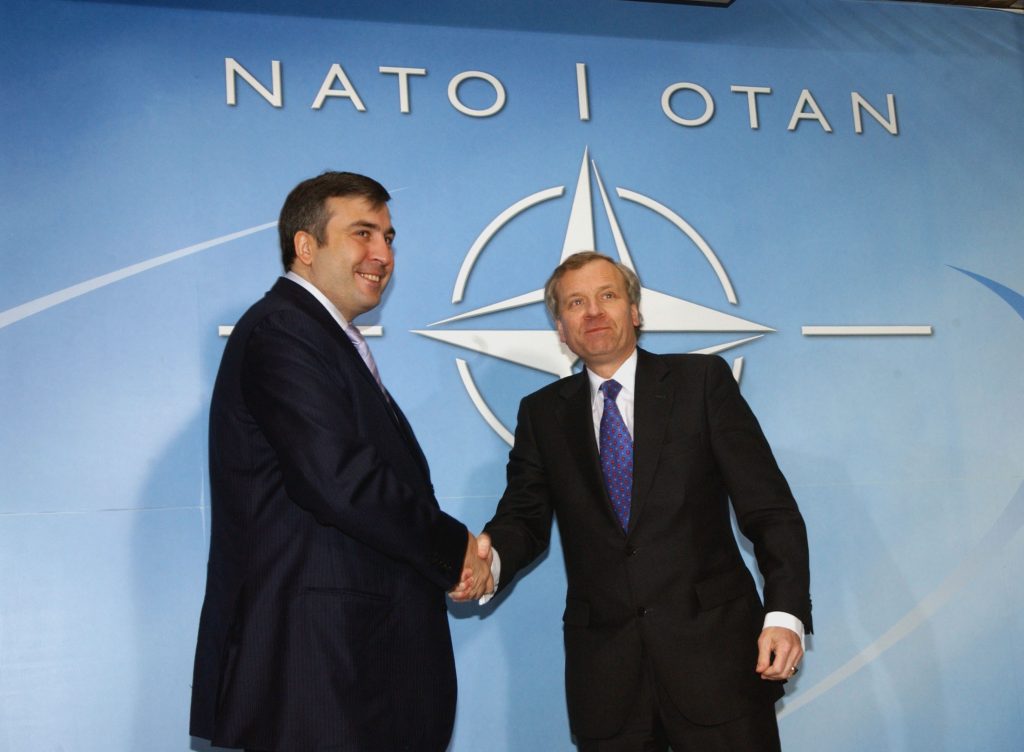
Those predicting that the Russian incursion into Georgia will rejuvenate transatlantic solidarity might be overly optimistic.
Yes, the West has unanimously condemned Russian actions, labeling Moscow’s response as disproportionate and unjustified; in addition, all the members of the Euro-Atlantic community have reaffirmed their commitment to the territorial integrity of Georgia. But while the West shares a similar assessment of Russian actions, there is no consensus on Georgia’s own culpability or to how the West should react and respond. If not handled properly, these divisions—both between the United States and Europe and among Europeans themselves—jeopardize transatlantic solidarity as well as Europe’s own cohesion.
Is Georgian president Mikheil Saakashvili a courageous democrat resisting Russian bullying, or is he a reckless hothead intent on embroiling the West into a conflict with Russia? Has the Euro-Atlantic community been too lax in responding to Russia’s resurgence, or did the West do too little to integrate Russia and make her a “responsible stakeholder”? Is the policy objective now to push Russian forces completely from Georgia and ensure the reunification of Abkhazia or South Ossetia within a Georgia that becomes a full member of NATO, or is it to get the cease-fire conditions negotiated by Nicolas Sarkozy observed? Does the Russian attempt to strengthen its zone of influence within the Eurasian space pose a fundamental (and existential) threat to European security or not? France, with its own tradition of viewing its former empire in Africa as Paris’ “domaine reserve,” may have a different perspective on this matter than Poland.
The divergences in the answers to these questions are stark. For some European governments—France, Germany, or even Hungary—there is extreme unwillingness to jeopardize a growing (and interdependent) economic relationship with Russia on account of Georgia. For others, especially the Baltic states, there is real concern that a lackluster Western response weakens the value of their own security guarantees as NATO members and will tempt Moscow to increase pressure on them. Some analysts and commentators believe that Russia would never have resorted to military force had Georgia been given a membership action plan for NATO; others argue that Georgia would have been left alone if it had been more willing to accommodate Moscow’s concerns. Some worry about appeasing Russia; others warn about American provocations.
It is difficult, therefore, to envision how anything beyond a lowest-common denominator approach could be developed—unless Russia itself takes steps which begin to infringe upon the vital interests of the leading European states. We have seen, in both France and Germany, a re-examination of their stances toward Moscow after the Medvedev administration moved to recognize the independence of Abkhazia and South Ossetia, a step which many in Paris and Berlin felt had undermined their efforts to negotiate a settlement. Nevertheless, at this point in time, it seems highly unlikely that the EU will impose any meaningful sanctions against Russia—or that all NATO members will agree at the ministerial meeting in December to extend a MAP to Georgia and Ukraine.
This raises the possibility that Russia in 2008 becomes a repeat of the Iraq war of 2003—with no unified “Euro-Atlantic” position and thus no basis for concerted action. The West would then have to decide, as the EU did this past year vis-à-vis Kosovo, whether the allies could “disagree without being disagreeable”—allowing each individual country to chart its own course on Russia policy. But what would happen, then, if the U.S. and a “coalition of the willing” of NATO members were to extend security guarantees to Georgia? Would other European countries then raise the same objections that France and Belgium did in 2003, when they argued that Turkey could not expect NATO assistance if itthe United States in an “optional” war against Iraq and Saddam Hussein chose to retaliate? NATO is already under strain because of the Afghan mission; another major disagreement between its members could cripple the alliance permanently.
A frank conversation on the Russia question is long overdue. And as the guns of August demonstrated, the compromises reached at the NATO summit at Bucharest provide no real guidance.
Nikolas K. Gvosdev is on the faculty of the U.S. Naval War College. Photo courtesy NATO
Image: Georgia-NATO-2.jpg
